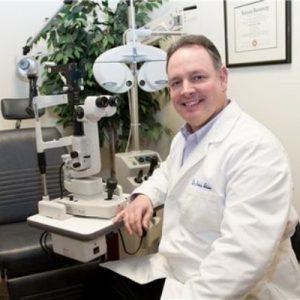Believe it or not, the coronavirus pandemic may have brought about a number of positive changes in many people’s lives.
The COVID-19 pandemic arrived at our doorstep in late 2019, and now almost a year later we are still trying to understand how this contagion will change the world we live in.
Being forced to stay at home, many people have rediscovered the wonders of their local environment — many people are spending more time with close family members and introducing themselves to neighbors.
Other people have devoted more time to home improvement projects, as evidenced by the dramatic increase in mid-year Home Depot earnings and the busy schedules of building contractors.
These seemingly small things are helping people to cope with the stress of the pandemic.
Moreover, an increasing number of people have also begun to appreciate the need for focusing on their medical care— which they may have ordinarily delayed or maybe even ignored altogether.
COVID-19 and visual health concerns
In the last few months, eye doctors have noticed an increase in the amount of patients looking to correct their vision once and for all. The most sought after surgical procedures include refractive eye laser surgery (LASIK), and cataract surgery.
Some eye surgeons have more than doubled their number of scheduled eye surgeries as a result of the ongoing pandemic.
Away from usual distractions, and with more time to reexamine life priorities, many people seem to have discovered a truth about eye care and eye health. More specifically, that improved sight leads to an improved life.
Market research studies have repeatedly shown that 80% of people that need glasses or contact lenses for clear vision, would strongly consider refractive laser surgery if they fully understood the benefits. Though, for some reason, most people don’t ask their eye doctors for information…until now.
According to studies, 95% of people are satisfied with the results of their laser eye surgery and state that LASIK surgery has improved their quality of life.
Additionally, evidence strongly suggests a positive correlation between cataract surgery and quality of life. When it comes to cataracts, one of the greatest fears of the older population is falling. With cataract surgery, not only does the patient experience a sense of freedom— from both eyeglasses and blurred vision— but also a reduction of anxiety.
If you have been thinking about laser eye surgery or are concerned about your worsening cataracts, visit your eye doctor to discuss the benefits of eye surgery.
Your improved sight can lead to an improved quality of life.








